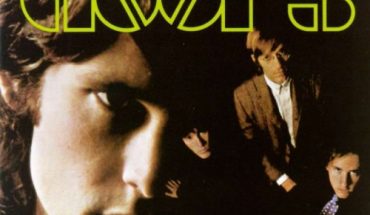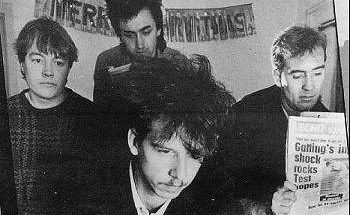It was a time when the flush-with-cash public were keen to hear tales of home so that it could put them up against their own and make comparisons. And also ask, how far have we come? In this healthy climate of creation in 1995 came Paul Weller’s Stanley Road and Tricky’s Maxinquaye, each record a personal attempt to explain the nebulous idea of citizenship in a land almost too complex to explain. Tribalism and regionalism had beset the music industry. The kings of the north were Oasis, riding high with (What’s the Story) Morning Glory?, the prince of the south was Weller, and in the west, sending it long with Maxinquaye, stood Tricky.
With Maxinquaye arrived the ultimate modern proletarian musical tract for the ketamine kids generation. It arrested one’s attention back then and still does. You may not like it, but you must at least recognise that the city from where it hails is the history of Britain as microcosm. Bristol, a city not yet recovered from the catastrophic de-industrialisation of the Thatcherite era, helped form the world view of a lad called Tricky, a recording artist who moved swiftly from out of the shadow of Massive Attack to make 1995 – that year of autobiography – a moment when British recording artists once again found their mojo.
In Maxinquaye there came a new form of lyrical expression that cut ties with clarity of form and instead invited the listener to decode the messages which are woven, almost hidden, within the layers of sound that are served like courses in a restaurant. On tracks like Ponderosa and Black Steel one can hear tabla funk laced with a turnpike madrigal, underlaid with with rock, and on Hell Is Round the Corner the nod is in the direction of Isaac Hayes’ Ike’s Rap II which is expansive, meditative and freed from the three-minute rat-run of the radio friendly format.
Born of a Jamaican father and an Anglo-Guyanese mother, Tricky (aka Adrian Nicholas Matthews Thaws) seems born to deliver this cornucopia of an album. The record stills the listener, inviting him to dance or to sit. And think. But within the soundscape lie no answers that can be arrived at without the aid of chemicals. It helped shape the things to come. It’s form in transition, not the be all and end all of what a recording artist is capable of. Instead, it’s the first step on a path towards a different way of listening.
It came unexpectedly and spoke clearly of what it is to be a citizen in a country busy heading into the treacherous waters of a government helmed by New Labour. The lined face and distant eyes of the man behind this record lend us a vital piece of iconography necessary to understand the importance of the decade from which this record was issued. And there’s the name too: Maxinquaye, the name of the artist’s mother who died tragically when he was 4.
The album is perhaps a love letter to her from the son who never quite knew her. Born of a dysfunctional family, Tricky gave in this landmark long player the psychic download of a Briton the media is all too often quick to demonise and slow to aggrandise. To this day no proletarian soundscape has focused on the British youth experience quite as starkly.
Working class argot found new heights of expression in the sprechgesang (spoken, recitative singing) utilised on the album as Tricky fought against hackneyed sexual representations. The voice is authentic, veering between anger and apathy, despair and shabbiness, the words arriving in vino veritas, in sotto voce, to alarm and inform, to invoke disquiet. And it resonated with the public as a result.
Nominated for the Mercury Prize that year, its form and function derived from a man of familial dysfunction. It’s painting with sound, or perhaps, even better, verbalised graffiti, a mind spill in which the listener roils at his pleasure in the atmospherics. Every possible genre is thrown into the mix and is flavoured with the slur of the two vocalists (Tricky and his then-girlfriend Martina Topley-Bird). From rock to reggae, early ’70s laid-back soul-funk to salsa, hip-hop and pagan ley line lilts to the autochthony of the Punjab, the music flows from Tricky as does water from a tap. Trip-hop fails to accurately described the sound while record elevates itself from the easily arrived at pigeonhole. It’s quality is finally inherent in its resistance to being classified.
In Maxinquaye came a brew, if not quite concocted by bitches, then certainly by witches. The fusion of Tricky’s musical styles has not been bettered, only by dint of the fact that he did it first, and so well. A record as original as this has yet to be made but come it will. And until then, you’ll have to live with yourself.
Jason Holmes
@JasonAHolmes





